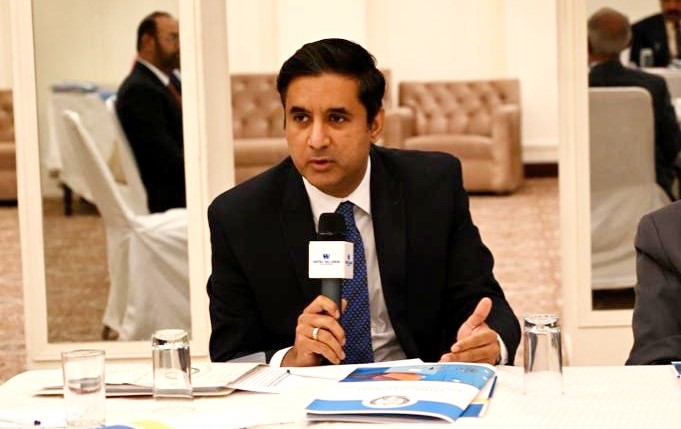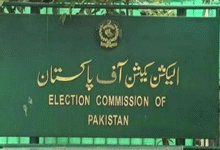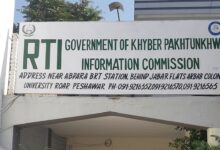Balochistan to Notify Information Commission in 15 Days

Islamabad: The Balochistan Information Secretary, Mr. Hamza Shafqaat, announced during the meeting of the National Forum of Information Commissioners (NFIC) that the Balochistan government is committed to notifying the Balochistan Information Commission (BIC) and the rules of the Right to Information (RTI) Act in the next 15 days.
The NFIC meeting was convened by the Centre for Peace and Development Initiatives (CPDI) and was held in Islamabad. Serving information commissioners from the Federal, KP, Punjab, and Sindh also participated in the meeting and reiterated their commitment to promoting transparency and accountability in Pakistan, with a focus on ensuring public access to information.
During the event, Mr. Mukhtar Ahmad Ali, Executive Director of CPDI, provided an overview of the historical and legislative landscape of the right to information and freedom of information in Pakistan.
He highlighted that concrete efforts to promote RTI began in 2013, when dominant political parties in KP and Punjab competing in the political arena added to the RTI implementation in their provinces. He emphasized that the emergence of RTI in Pakistan is the biggest reform in contemporary times, representing a transformation from secrecy to transparency.
He demanded that the federal and provincial governments ensure administrative and budgetary support of Information Commissions so that appellate bodies can perform their duties optimally.

Challenges Faced by Pakistan Information Commission Discussed
Shoaib Ahmad Siddiqui, Chief Information Commissioner, Pakistan Information Commission, discussed the progress and challenges of the Pakistan Information Commission during the event.
He identified several key challenges, including a shortage of staff and sanctioned posts, low levels of awareness among citizens, delayed appointments of information commissioners, and delays in finalizing service rules.
He said that these challenges are currently being addressed by the Commission as it continues to work towards ensuring that citizens have access to the information they need.
Ms. Farah Hamid Khan Expresses Concerns about Lack of Quorum and Government Support
Ms. Farah Hamid, Chief Information Commissioner of the KP RTI Commission, expressed her concerns about the Commission’s prolonged lack of quorum, which has resulted in its dysfunction. Despite this setback, Ms. Hamid noted that the Commission is actively striving to enhance public awareness, especially among women citizens, through the use of proactive disclosure and innovative information technology.
She further explained that bureaucratic hurdles, lack of funding, political uncertainty, and a lack of government commitment have created significant obstacles for the Commission, which is working diligently to address these challenges and fulfill its mandate.
Dr. Syed Jawaid Ali Highlights Recent Progress of Sindh Information Commission
Dr. Syed Jawaid Ali, Chief Information Commissioner of the Sindh Information Commission, acknowledged the challenges faced by the Commission in promoting the right to information due to a lack of public awareness.
However, he highlighted recent progress, including the appointment of 19 out of 56 designated Public Information Officers and the successful resolution of 48 out of 166 complaints received in the last five months.
He added that they are also improving the website of the Sindh Information Commission. Dr. Ali reiterated the Commission’s commitment to promoting transparency and accountability in government and pledged its support to citizens seeking information.
Punjab Information Commission Shares Landmark Orders
Mr. Mahboob Qadir Shah, Chief Information Commissioner of the Punjab Information Commission, shared the landmark orders that have shattered bureaucratic inertia in Punjab. He put special emphasis on the establishment of websites to ensure proactive disclosure of information as per the RTI act. Moreover, Information Commissions shared their progress and initiatives to implement RTI laws.

Issues like non-allocation of funds, delay in appointment of information commissioners, lack of administrative support from the government, delay in finalizing the working rules and subsequent shortage of staff, resistance in disclosing information and colonial mindset of public bodies were discussed at length.






